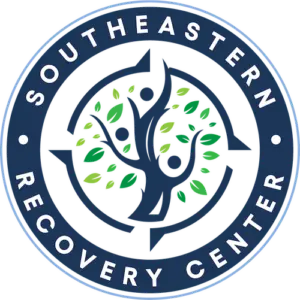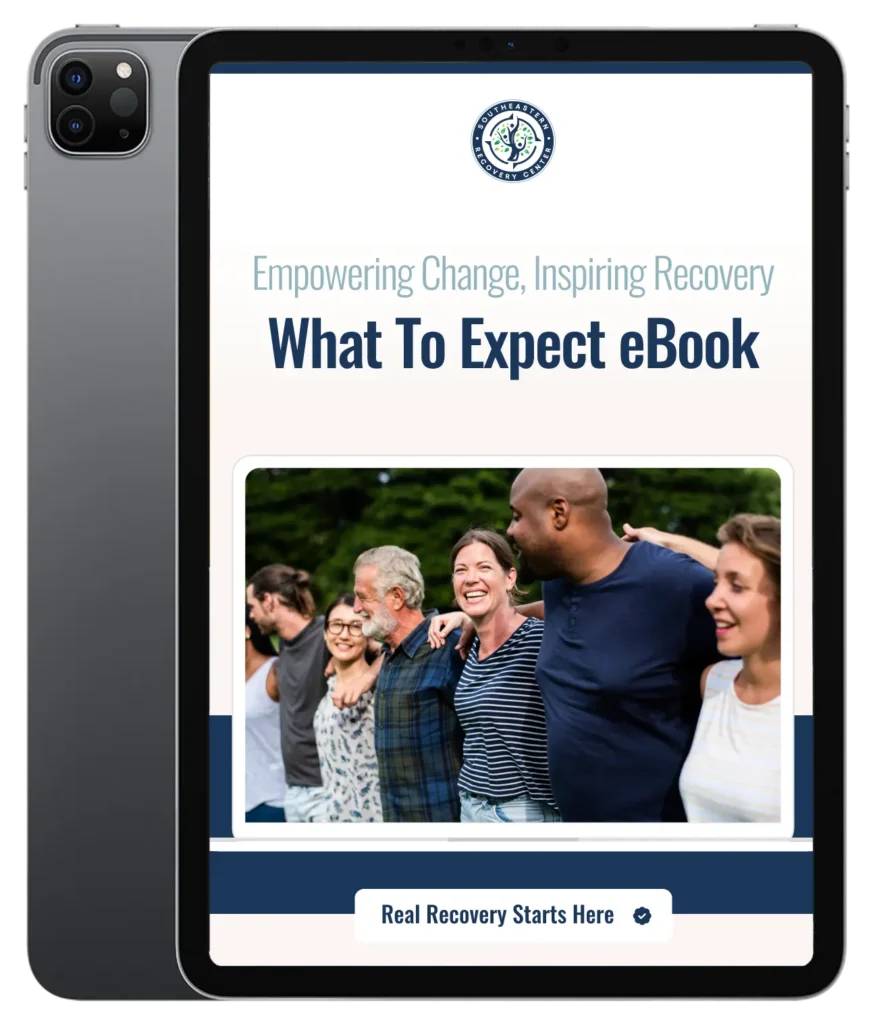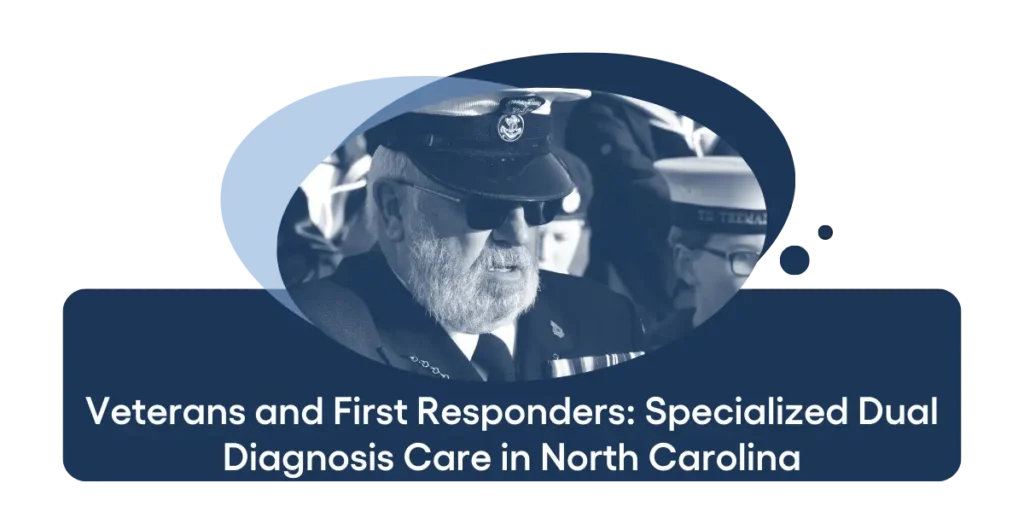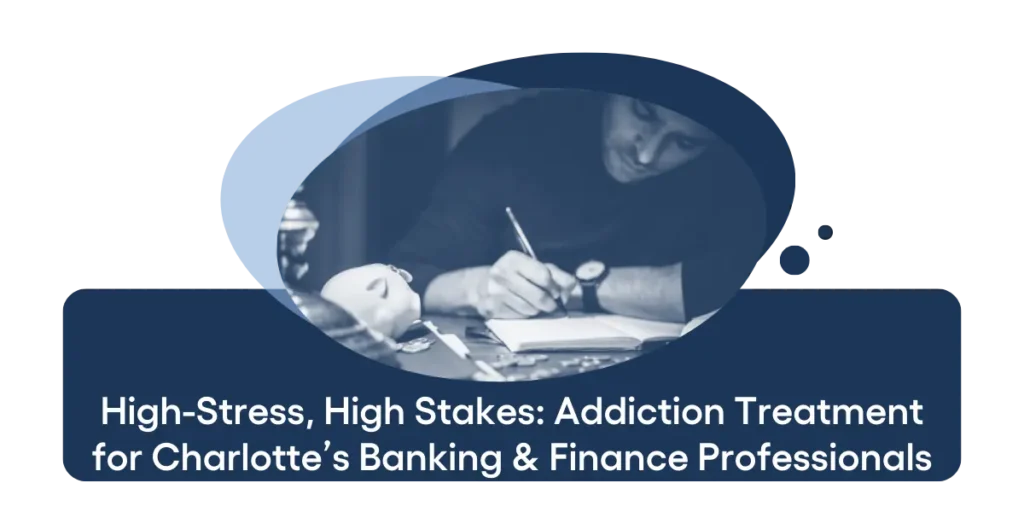Even though you feel like giving up on a drug-addicted son or daughter, sometimes the best thing you can do is take a step back and let them reach a point of seeking help on their own.
Dealing with a child’s drug addiction is one of the most challenging and heart-wrenching experiences a parent can face. Watching your son struggle while trying to help without enabling can lead to overwhelming guilt, frustration, and emotional exhaustion. The question, “When do I give up on my drug-addicted son?” arises when parents feel they’ve exhausted every avenue of support.
Understanding Drug Addiction
Substance use disorders affect countless individuals and their families. According to theNational Survey on Drug Use and Health, more than 27 million people aged 12 and older in the United States struggled with drug use in 2023. Young adults, particularly those between 18 and 25, are at the highest risk due to the exploratory nature of this life stage.
The National Institute on Drug Abuse estimates that substance abuse costs the U.S. over $600 billion annually in healthcare, criminal justice, and lost productivity.
The Emotional Toll on Families
Addiction doesn’t just harm the person using drugs—it disrupts the entire family system. Parents often struggle with a mix of emotions, including guilt (“Did I fail as a parent?”), anger, and hopelessness. Many families also experience “codependency,” a dynamic where one person’s addiction enables unhealthy behaviors in another, such as covering up mistakes or making excuses for the addict’s actions.
Studies show that family members of addicts frequently report symptoms of anxiety, depression, and PTSD. The constant cycle of hope and disappointment can lead to burnout, making it difficult for parents to determine when and how to step back.
Why Enabling Harms Both Parents and Addicts
It’s natural for parents to want to protect their child, but there’s a fine line between supporting and enabling. Providing financial aid, covering up for their mistakes, or shielding them from consequences often stems from love but can unintentionally reinforce their addiction. Letting your child face the natural consequences of their actions can help them realize the need for change.
According to Psychology Today, enabling behaviors remove accountability, making it harder for the individual to recognize the need for change.
Setting Boundaries is a Crucial Step
Creating and upholding boundaries is one of the most impactful ways to support your child without enabling their behavior. Clear boundaries not only protect your emotional well-being but also provide the structure your child needs to take steps toward recovery.
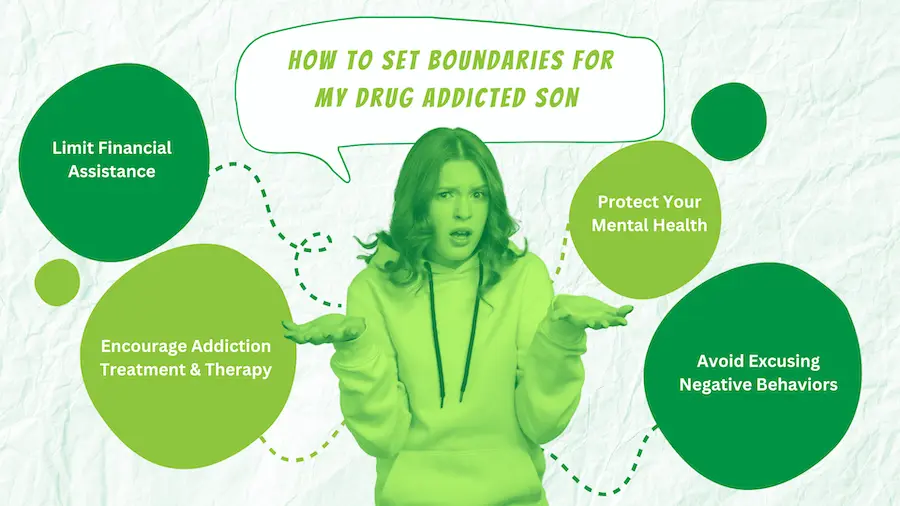
1. Limit Financial Assistance
Instead of offering cash, which could be misused, provide necessities like food or help cover treatment-related costs. Be transparent about your decision, explaining that this comes from a place of love and concern. Consider offering tangible items (groceries, clothing, necessities – instead of cash), support for treatment-related expenses, and above all else – be completely transparent about your reasons for not offering cash.
By redirecting financial support toward recovery-oriented needs, you reduce the risk of unintentionally enabling destructive behaviors.
2. Encourage Treatment
The path to recovery begins with treatment, but the decision must ultimately come from your son. Studies show that individuals entering treatment voluntarily are more likely to achieve long-term recovery. According to SAMHSA, 21.6 million people aged 12 and older needed substance use treatment in 2019, but only 12.2% received it.
Presenting treatment as an opportunity rather than an obligation increases the likelihood of a positive outcome.
3. Protect Your Mental Health
Supporting a loved one with an addiction can be emotionally draining. The American Psychological Association shares that family members of individuals with addiction often experience high levels of stress, anxiety, and depression. To safeguard your well-being, try engaging in self-care activities, join a family support group, and set boundaries for how you spend your time.
Self-care is essential not only for your health but also for maintaining the strength to navigate the challenges of supporting someone in recovery.
4. Avoid Excusing Negative Behaviors
Addiction often drives harmful or irresponsible behavior, but shielding your child from the consequences may delay recovery. According to NIDA, facing the real-world outcomes of addiction can be a wake-up call that motivates change. By refusing to justify or excuse negative actions, you create an environment where change becomes not just possible, but necessary.
Setting and enforcing boundaries is a challenging but essential step toward recovery. Studies consistently show that family involvement in recovery can improve outcomes.
When Is It Time to Let Go?
Stepping back doesn’t mean abandoning hope or severing ties; it’s about recognizing when your efforts are no longer productive. Here are signs it may be time to shift your focus:
Repeated Efforts Have Failed:
If interventions and offers of help have been declined or ineffective, stepping back could help your child reflect on their situation.
Your Health Is Suffering:
Constant stress, anxiety, or physical health issues are indicators that you need to prioritize your well-being.
Harmful Dynamics Continue:
If your child’s actions endanger your safety or the safety of others, firm boundaries are non-negotiable.
Letting go doesn’t mean giving up hope. Instead, it involves shifting your focus to self-care while maintaining an open line of communication.
How Parents Can Cope With A Drug Addicted Son Or Daughter
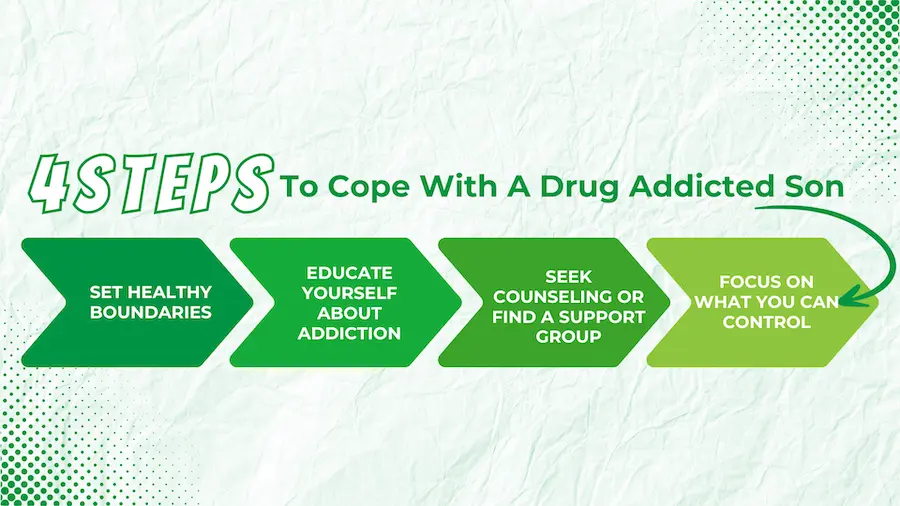
Parents often carry the emotional weight of their child’s addiction long after they’ve set boundaries – but you don’t have to.
Coping mechanisms can help alleviate guilt and foster resilience:
Educate Yourself About Addiction
Understanding addiction as a disease rather than a moral failing can help you shift from guilt to compassion. The National Institute on Drug Abuse (NIDA) and Southeastern Recovery Center offer educational resources for families.
Seek Counseling or Support Groups
Therapy can provide a safe space to process emotions and develop healthy coping strategies. Support groups like Al-Anon or Nar-Anon can connect you with others who understand your experience.
Focus on What You Can Control
You cannot control your son’s addiction, but you can control how you respond to it. Practicing mindfulness and stress-reduction techniques can improve your emotional well-being.
Frequently Asked Questions On How To Help Your Drug Addicted Son
How can I support my son without enabling his addiction?
Support your son by encouraging treatment, offering emotional support, and setting clear boundaries. Avoid providing financial assistance that could fund his addiction.
What resources are available for families dealing with addiction?
Organizations like Al-Anon and Nar-Anon offer support groups for families. Professional counseling, treatment facilities like Southeastern Recovery Center, and community resources like SAMHSA’s National Helpline (1-800-662-HELP) can also provide guidance.
Can setting boundaries improve my son’s chances of recovery?
Yes. Boundaries encourage personal accountability, which is a critical step toward recovery. By removing enabling behaviors, you allow your son to confront the realities of his addiction.
Finding Help with Addiction for Your Son at Southeastern Recovery
At Southeastern Recovery Center, we understand the challenges addiction places on families. Our team is here to support both your loved one and you. We offer evidence-based treatments and family-focused programs designed to foster lasting recovery and healing.
Taking that first step is never easy, but you don’t have to face it alone. Contact Southeastern Recovery Center today to learn how we can help your family start the journey toward recovery and resilience. Together, we can rebuild hope and create a brighter future.
